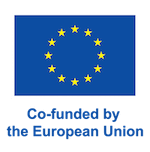eCAN pilots to assess benefits of telemedicine in cancer care get green light for patient enrolment
The Joint Action has launched two pilot projects using patient-reported outcome measures (PROMs) and experiences (PREMs) to explore how telemonitoring and teleconsultation can improve the physical and physchological rehabilitation processes of cancer patients. It is expected that 354 patients and 18 cancer centres from ten different EU countries participate in the study.
Patients involved in the clinal trials suffer from breast, head & neck, and advanced cancer. The study lasts for eight weeks, in which the participant patients will be asked to attend sessions with a physiotherapist or a psychologist, and complete some questionnaires to assess their health outcomes and experiences.
The results of these pilots will provide a framework of recommendations and guidelines for the integration of telemedicine and remote monitoring into European healthcare systems.
Smartwatches and the eCAN app to collect data
WP7, responsible for telemonitoring, has developed a mobile APP to track patients’ outcomes, experiences, activity and lifestyle. Other indicators, such as quality of life, pain or distress, will be reported by patients via the eCAN app.
At the same time, smartwatches will be used to automatically collect data on patients’ daily activity, sleep quality, heart rate, etc. Clinicians will collect all this data in a secure web platform that will help them make decisions about patient treatment and care, while also enabling future artificial intelligence (AI) applications.
Data security and privacy protection
Data security and privacy, together with their challenges and risks, will also be addressed in parallel with the conduct of the study. The digital tools used have security and privacy systems that guarantee patients’ rights and meet the General Data Protection Regulation (GDPR) requirements for teleconsultation.
The main purpose of this platform is to provide a versatile and privacy-oriented solution for the management of telemonitoring and remote medical services. In doing so, it aims to increase the efficiency and accessibility of medical support for all patients, while minimising inconvenience and accommodating different needs.
Why these types of cancer?
Surgical morbidity is a common complication of breast and head and neck cancer treatment. In fact, postoperative sequelae of breast cancer have been described in up to 70% of patients, including axillary girdle syndrome, pain, lymphangitis, fatigue, cognitive, physical, social and emotional impairment.
On the other hand, head & neck cancer patients often experience functional impairment due to the tumour and its treatments, including difficulty swallowing, speaking, breathing, pain and cancer-related fatigue. To tackle secondary effects, rehabilitation is recognised as an important aspect of care for patients suffering from breast and head & neck cancer.
Several clinical trials have shown the beneficial effects of physical exercise during and/or after cancer treatment. In addition, psychological support is essential for patients with advanced cancer to improve their quality of life and level of distress.
The World Health Organisation (WHO) also recognises the impact of rehabilitation and defines it as “the use of all means to reduce the effects of disabling and handicapping conditions and to enable people with disabilities to achieve optimal social integration”.
“However, the rehabilitation needs of this cancer patient population remain underestimated and undertreated”, states Vittorio Castaldo, one of the researchers involved in the eCAN pilots. For this reason, this project seeks to highlight and include telemedicine tools among the means that can facilitate the assessment of motor and sensory deficits and enable remote training and education of patients.
![]() Co-funded by the European Union. Views and opinions expressed are however those of the author(s) only and do not necessarily reflect those of the European Union or HaDEA. Neither the European Union nor the granting authority can be held responsible for them.
Co-funded by the European Union. Views and opinions expressed are however those of the author(s) only and do not necessarily reflect those of the European Union or HaDEA. Neither the European Union nor the granting authority can be held responsible for them.
 Pexels (Thirdman)
Pexels (Thirdman)



